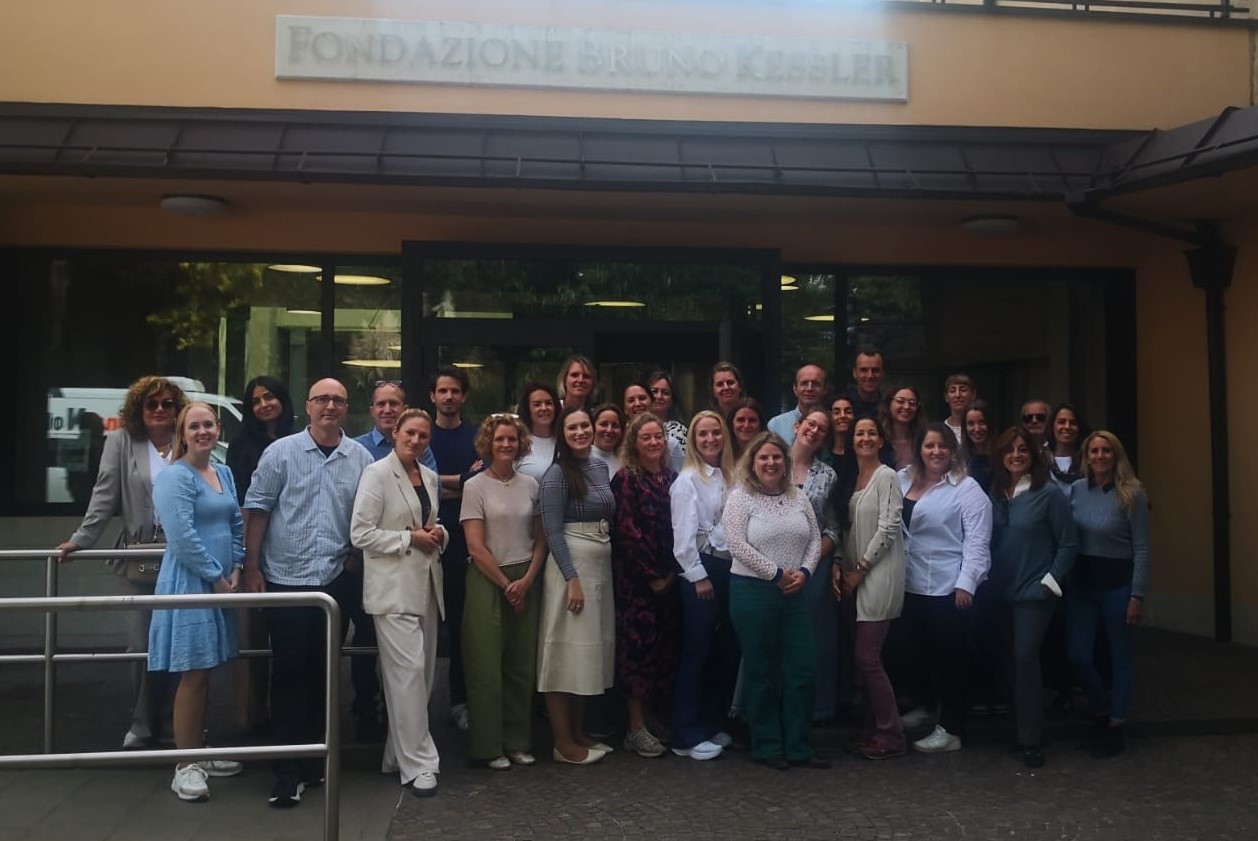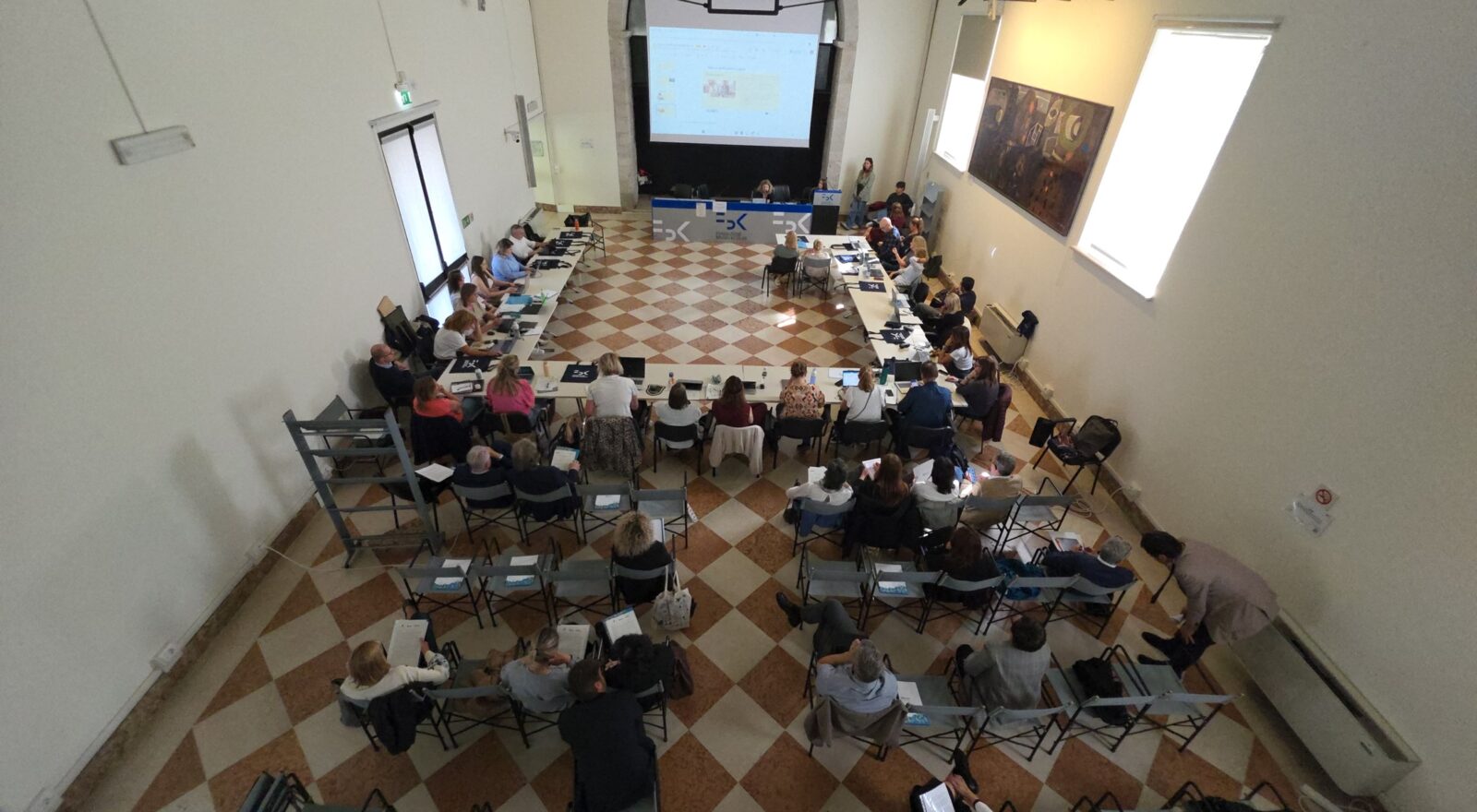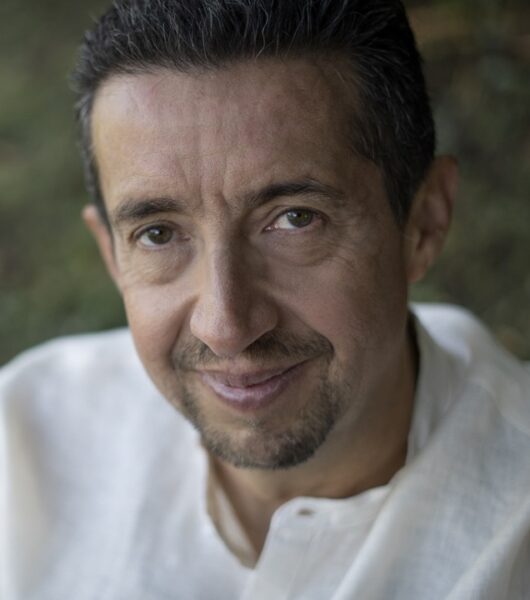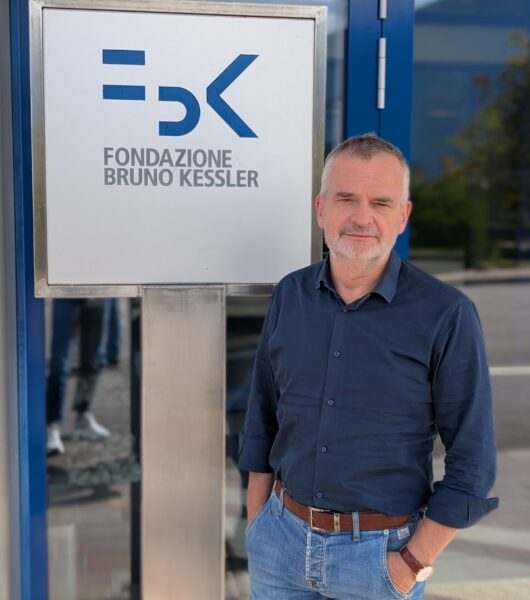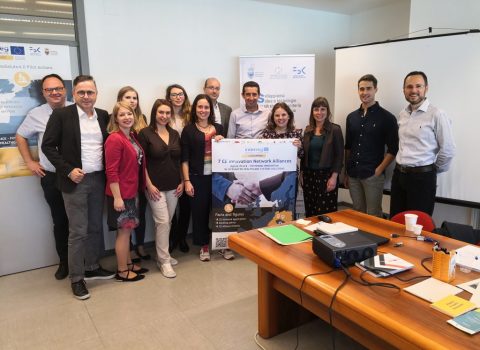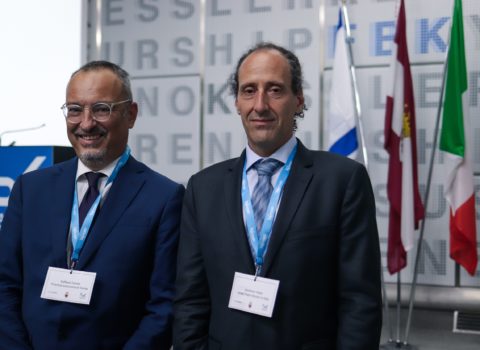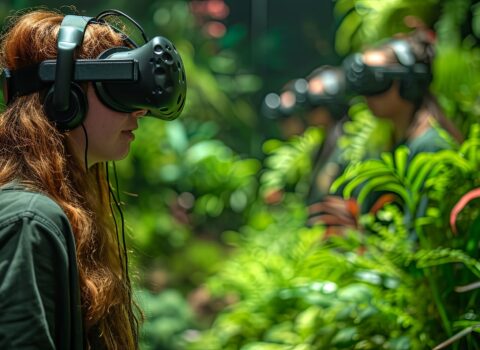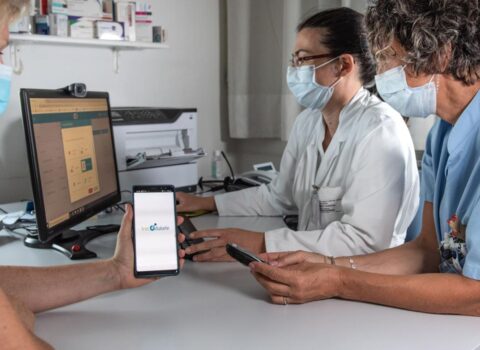
The Autonomous Province of Trento hosted the seventh meeting of the European project “EUVECA”
The meeting was held at FBK in Via S. Croce in Trento from Monday, September 29 to Wednesday, October 1.
Trento hosted the 7th meeting of the European project “EUVECA” (European Platform for Vocational Excellence in Health Care), the initiative that brings together seven regional centers of professional excellence and plans to develop a digital platform for continuing education in the health and human services professions.
Over the three days in Trentino, Fondazione Bruno Kessler, a partner in the project along with the Autonomous Province of Trento, presented the FAD (distance learning) platform “Edu4health”, an important resource offering the network of partners multilingual training tools for health professionals, teachers, and students.
The sustainability of the European healthcare sector is being tested by six mega-trends: the aging population; the growing importance of chronic diseases and comorbidity among patients; the information revolution and the general digitization of society; personalized medicine; the modern healthcare consumer; and the climate challenge.
These factors demand an in-depth review of skills in the health sector. It was precisely to respond to this need that EUVECA was created—an ERASMUS+ project designed to support the development of future-oriented skills in the health and care sector. The heart of the project is clear: to create international collaboration and health innovation through seven European hubs of regional professional excellence, which will collaborate via an online platform for excellence and professional development.
Fondazione Bruno Kessler’s main offices on Via S. Croce hosted the seventh project meeting. From Monday, September 29 to Wednesday, October 1, 2025, it welcomed 50 participants from Denmark, Germany, Norway, the Netherlands, Slovenia, and Spain, along with representatives from major European networks – EHMA, ECHAlliance, and ESNO – and provincial stakeholders (Trento Province Healthcare System; health and human services professional associations; ECM, TSM and ProMIS training providers, the national health network involving regions, autonomous provinces, and ministries).
At the opening of the three-day event, the Provincial Councillor for Health, Social Policies and Cooperation, Mario Tonina, sent his greetings to the 35 partners present at FBK. Councillor Eleonora Angeli, already involved with the EUVECA project in her previous role, also took part.
The new General Manager of PAT’s Health and Social Policies Department, Andrea Ziglio, was then welcomed: “EUVECA is a virtuous example of European collaboration,” commented Ziglio. “The presence of about 35 European partners and local stakeholders underlines its strategic importance. In recent days, the Edu4Health platform—the digital heart of the project—and the developed FAD courses have been presented as key tools for professional growth in the sector. I am convinced that this project’s work will produce tangible benefits for our professionals and, consequently, for our citizens—strengthening ties and sharing experiences that will shape the future of healthcare. A virtuous example perfectly integrated with the future Trento Province University-integrated Healthcare System.”
The Autonomous Province of Trento participates in the project through the Department of Health and Social Policies and two of its services (Health and Non-Self-Sufficiency Policies, Innovation and Research Office, and Health Professions Service, Training and Relations with Universities).
For Fondazione Bruno Kessler, which designed and developed the “Edu4Health” platform, the working group includes two units of the FBK Center for Digital Health & Wellbeing (DHiLab – Digital Health Innovation Lab, led by Claudio Eccher, and DHRes – Digital Health Research, led by Oscar Mayora), in addition to the project managers of PAT and TrentinoSalute4.0.
The meeting was also an opportunity to take stock of the work completed so far, with the presentation of three training courses developed in the Province and dedicated to psychogeriatrics, the Breast Cancer Unit of the Santa Chiara Hospital in Trento, and artificial intelligence. These contents adds to “Edu4Health”, which collects and offers materials dedicated to the future challenges of healthcare.
“The central theme of the course that we have included in the platform,” explained Oscar Mayora (FBK), “concerns the use of artificial intelligence in healthcare. The course aims to highlight the relevance of new technologies, including artificial intelligence, pervasive healthcare, and virtual reality. These technologies today offer many opportunities to make the work of healthcare professionals more efficient. They are proposed as a solution to a crucial problem in the health sector: the imbalance between the number of doctors available and the time needed to treat all patients requiring assistance. Technologies can play a crucial role in terms of scalability and greater efficiency, allowing us to reach more people than in the past.”
eveloped by FBK as part of the project, the Edu4Health platform is dedicated to three categories of recipients (healthcare professionals, teachers, and students), offers mobility opportunities, and presents training resources intuitively in eight languages: English, Dutch, Italian, Spanish, Danish, German, Slovenian, and Norwegian.
The EUVECA project and the Edu4Health platform represent a significant step towards building a more resilient and innovative European healthcare system. Thanks to the collaboration between institutions, centers of excellence, and professionals in the sector, this initiative serves as a reference model for continuous training and skill development—key to facing the challenges brought about by ongoing social change.
During the meeting, the working group also discussed the development potential between the various “hubs” and outlined the planning for the next phases.
In addition to the working sessions, participants had the opportunity to explore and appreciate the cultural heritage of the Trentino area. The program included a visit to the evocative Castle of Buonconsiglio in Trento—a symbol of local history—and an in-depth study session at the Healthcare System’s Proton Therapy Center, recognized as a reference point for medical research and innovation in the Province.
THE EUROPEAN PROJECT
The EUVECA (European Platform for Vocational Excellence in Health Care) project is funded under the Erasmus+ programme, the European Union’s instrument dedicated to education, training, youth, and sport. The initiative was designed to support the development of strategic, future-oriented skills within the health and care sector. The four-year project began in June 2022 and will conclude in June 2026. The consortium consists of 19 entities from eight European countries, with Southern Denmark playing the lead role. The Autonomous Province of Trento and Fondazione Bruno Kessler (FBK) are both partners in this collaboration. The central element of the project lies in the creation of seven European regional hubs of professional excellence in the health and social sectors. These centres operate in synergy, leveraging a European Distance Learning Platform (FAD) — “Edu4Health” —to deliver basic and continuing training courses for sector professionals, along with specific cross-border mobility opportunities.
Collaboration opportunities
Until the conclusion of the European project in May 2026, the platform’s partner institutions are the members of EUVECA. However, starting in June 2026, the partnership will also be open to active external parties able to represent a European regional health ecosystem. This expansion will provide access to broader educational content, opportunities for collaboration in vocational education and innovation, and the ability to contribute to the development of the platform’s content, features, and layout.
This planned extension confirms the intention to transform Edu4Health into a dynamic and participatory tool, capable of responding to the needs of a constantly evolving sector. It represents a concrete opportunity for all organizations involved in health training to actively contribute to the growth of an increasingly cohesive, cutting-edge, and future-oriented European ecosystem. A collective commitment that, through the sharing of knowledge and resources, can make a difference for the health of European citizens.
